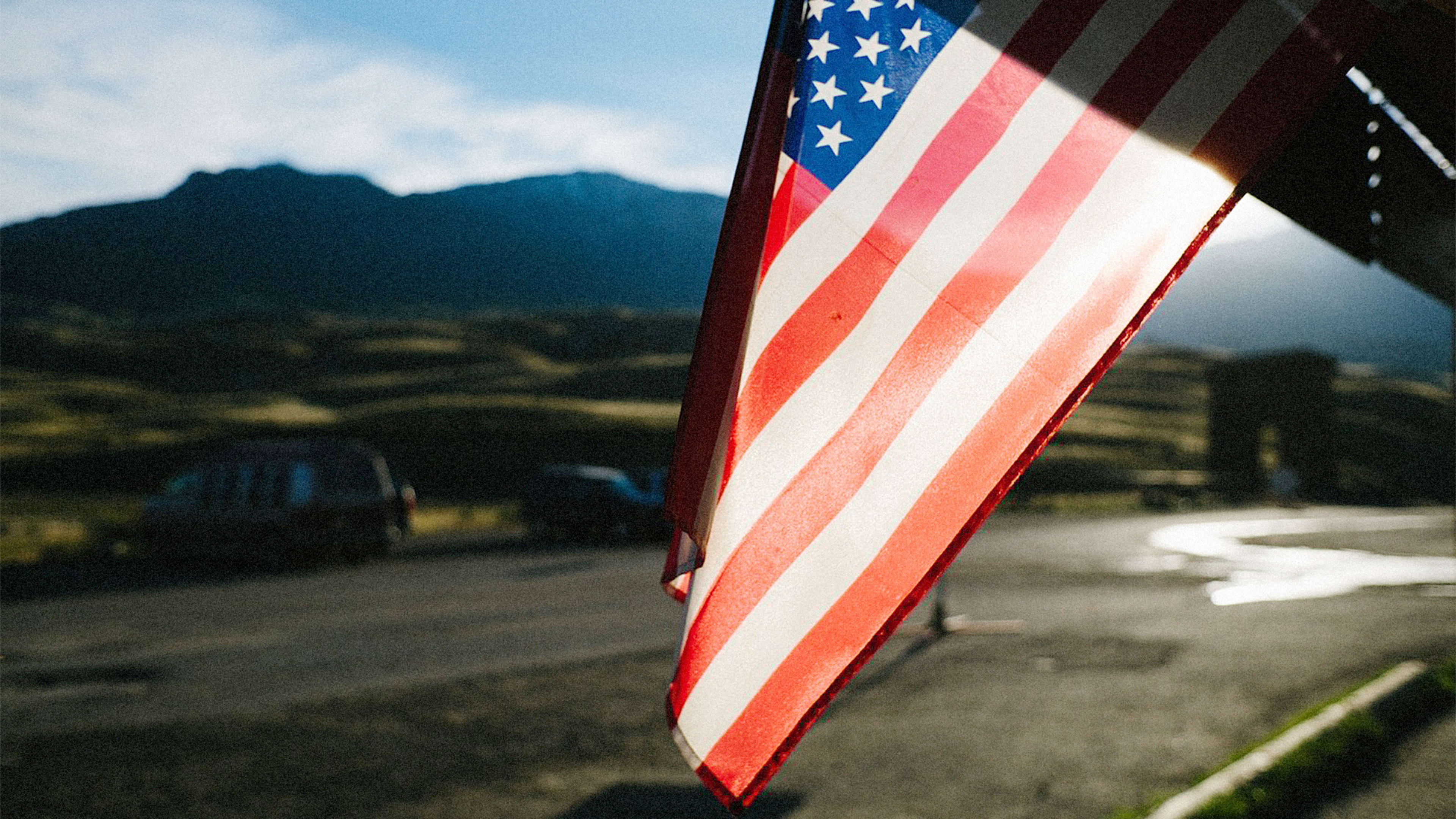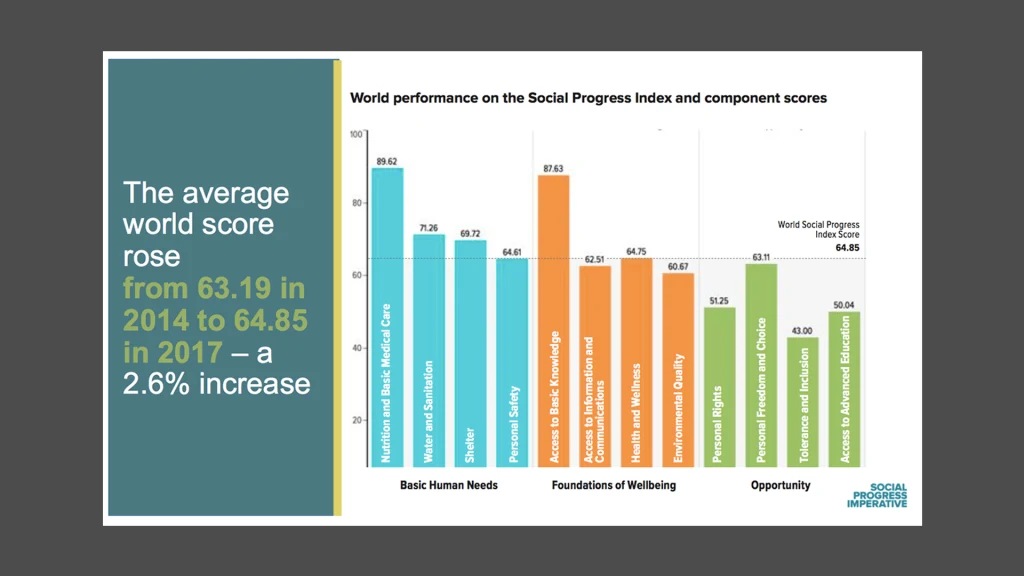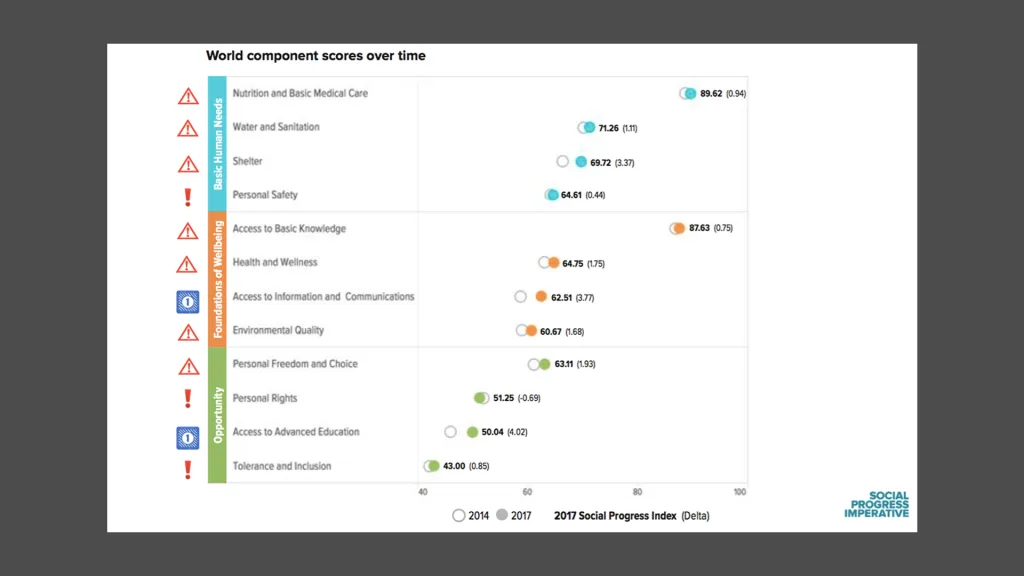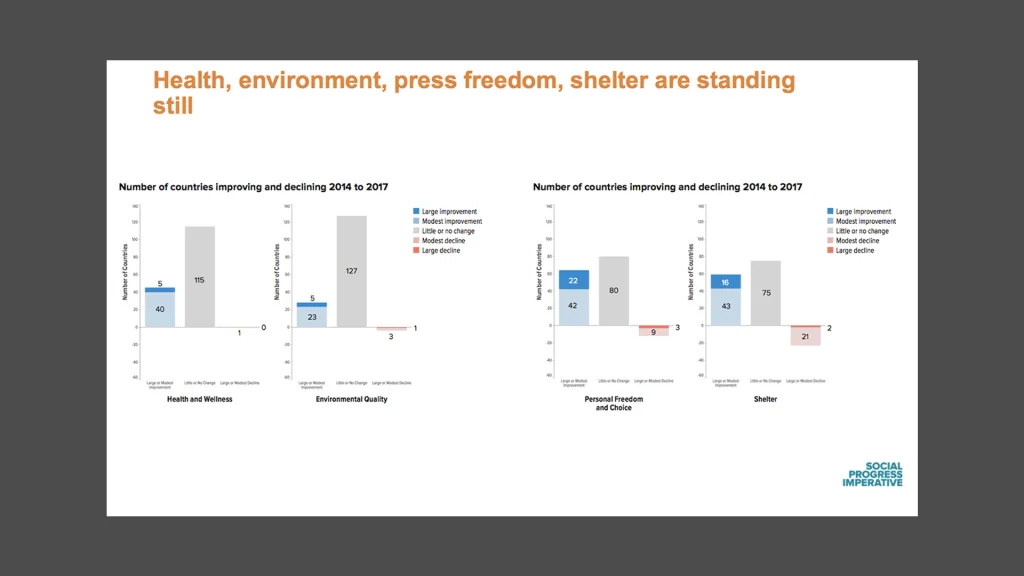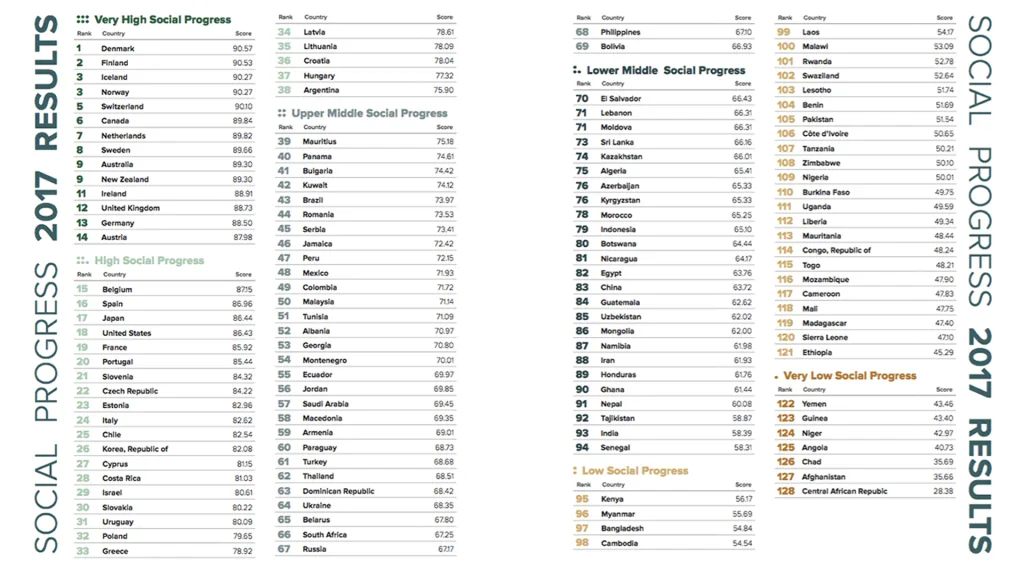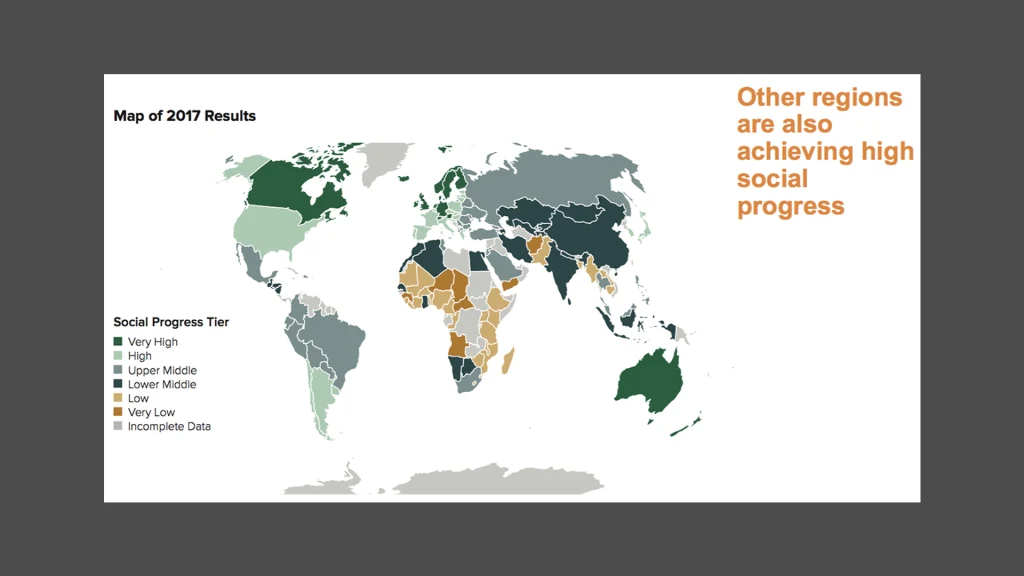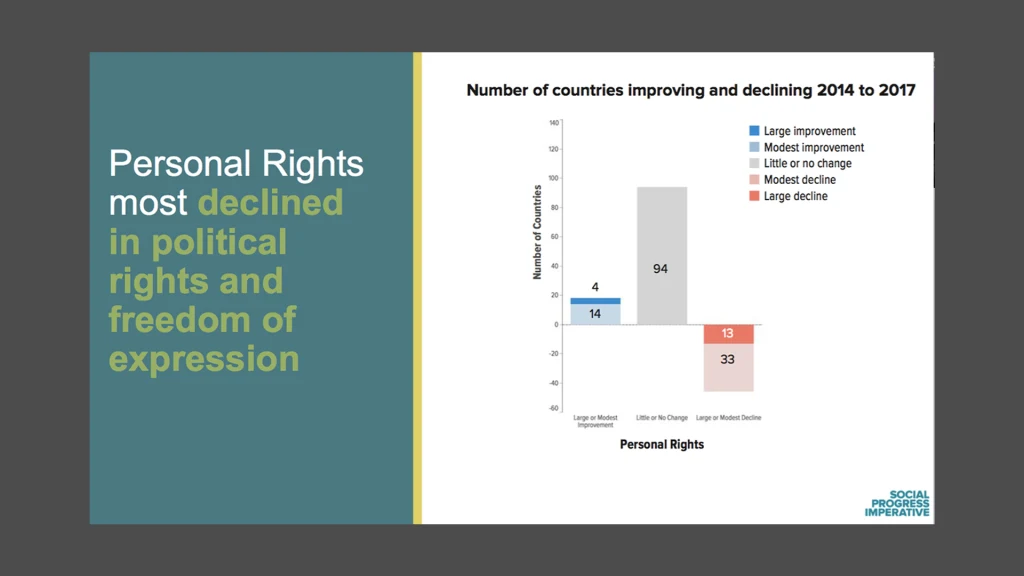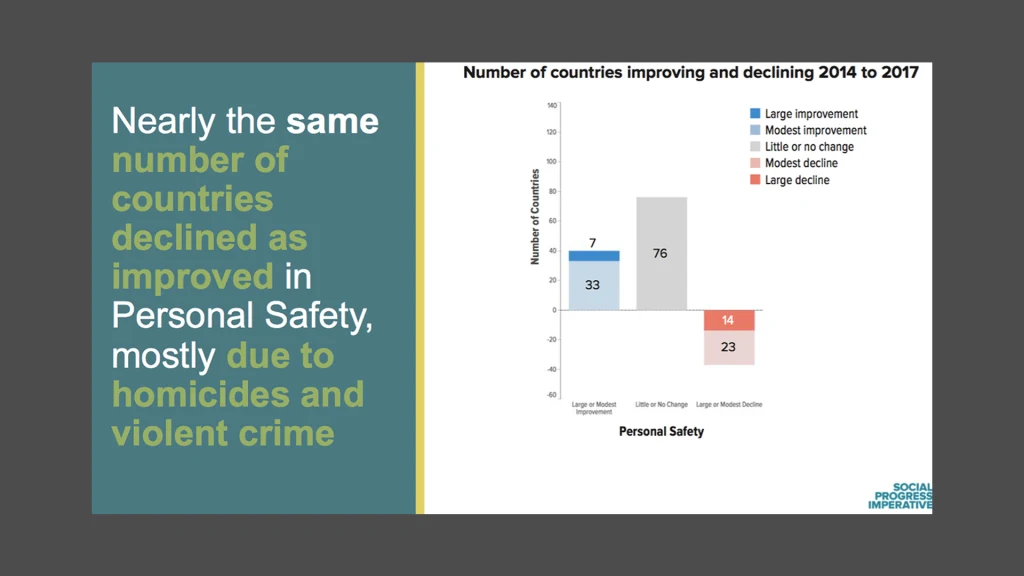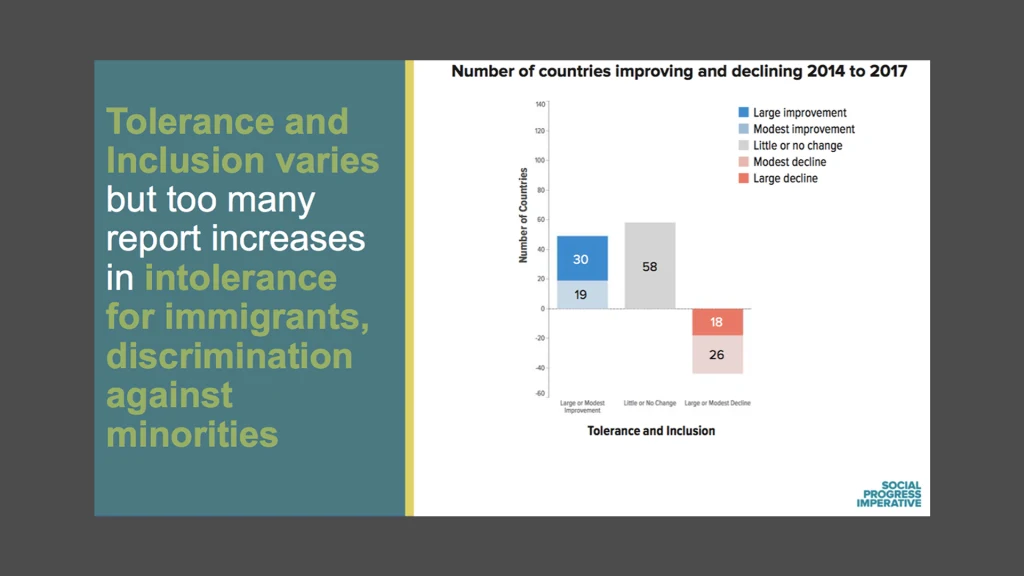The United States might be the second richest country on earth, and you might hear politicians laud it as the “greatest country on earth,” but measured by its capacity “to meet the basic human needs of its citizens,” the United States isn’t even in the top 10 on Earth. It ranks in 18th place, well behind world leaders such Denmark, Norway, Iceland, and Finland.
That’s according to the latest Social Progress Index which compares nations for their social and environmental performance. Globally-speaking, the U.S. isn’t doing too badly (18th puts us at a similar level to France and Japan). But, while we’re dominating measures like access to higher education, we’re failing badly on tolerance, inclusion, personal safety, and environmental protection. And like much of the advanced world, we’re largely standing still, rather than moving forward.
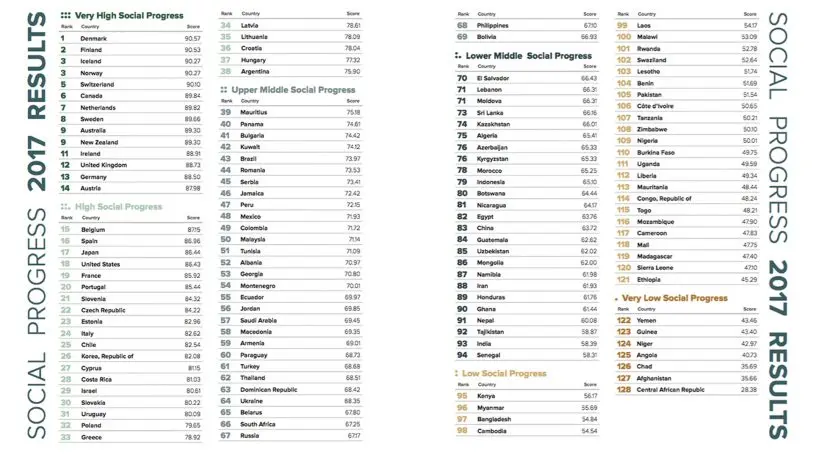
The SPI is one of several initiatives arguing for a broader view of a development than a country’s economic wealth. Global output, measured by GDP, has doubled since 1970, and extreme poverty has fallen from 40% of the world’s population to 10%. But this progress has been uneven, reflecting how money isn’t everything. Inequality is rising in richer countries, many of the poorest people in the world are in “middle income” countries, and GDP is a crude measure of advancement, counting up all the good stuff and all the bad. GDP doesn’t discriminate, for example, between sales of school textbooks and the handguns that teachers might now bring to school to protect themselves.
“Rising income usually brings major improvements in access to clean water, sanitation, literacy, and basic education,” the report says. “But on average, personal security is no better in middle–income countries than low-income ones, and is often worse. Too many people–regardless of income–live without full rights and experience discrimination or even violence based on gender, religion, ethnicity, or sexual orientation.”
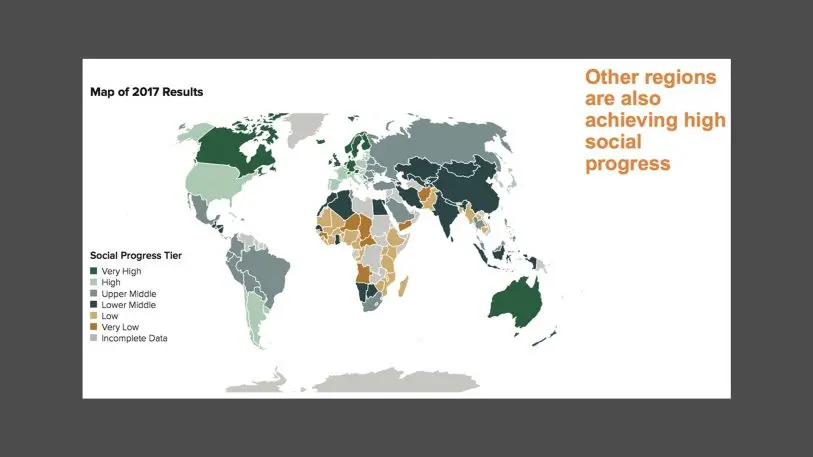
Given their wealth, the world’s biggest nations should have made more social progress in the last four years, the report argues. France, the U.S., Saudi Arabia, Russia, Turkey, and China should all be ahead of their social and environmental outcomes. Instead the U.S. has been “flat-lining on social progress since 2014,” says SPI CEO Michael Green.
The U.S.’s falling scores for intolerance and inclusion are similar to those in Poland and Hungary, which have seen increasingly divisive rhetoric aimed at immigrants and refugees. We’re also falling down on measures of community cohesiveness. Gallup asks people worldwide the extent to which they feel they can rely on friends and family in a time of need. We rank only 31st place. “You think of the U.S. and that civic quality of coming together, but it does as well as Belarus in terms of the social safety net,” Green tells Fast Company.
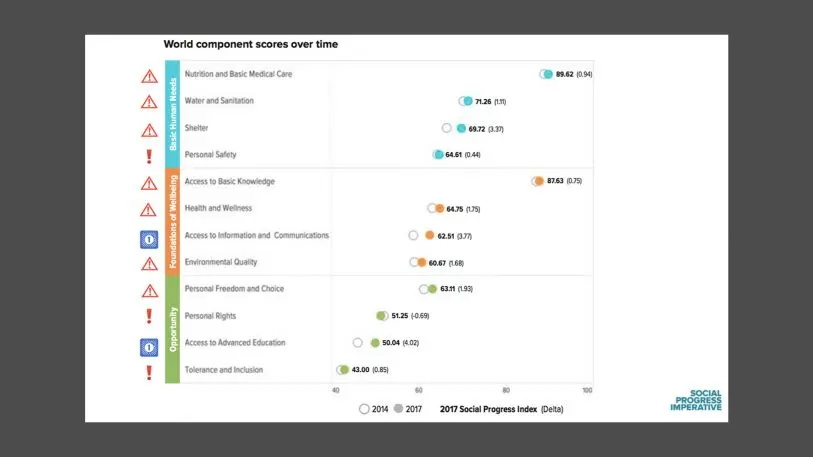
On average, the world falls somewhere between the social progress of Indonesia (rank 79) and Botswana (rank 80). In the last four years, the world’s overall SPI ranking has increased by 2.6% (from 63.19 in 2014 to 64.85 in 2017), with the highest scores in nutrition and access to basic knowledge and the lowest scores in tolerance and inclusion and access to advanced education.
Nordic countries have consistently topped this and other non-economic country rankings. The U.S. consistently falls down on health and wellness indicators, and our relatively high levels of violence, including gun crime. We rank 82nd for suicides, suggesting poor mental health, and 27th for life expectancy. Our overall health and wellness ranking puts us on par with Turkey, hardly a lofty honor.
Green is working governments with governments in India and Europe to develop individual SPI metrics and spread the message on non-GDP measures of progress. “The Social Progress Index isn’t a replacement for GDP, it’s a complement. GDP does give some measure of progress, but something like this can complete the picture,” he says.
Recognize your brand’s excellence by applying to this year’s Brands That Matter Awards before the early-rate deadline, May 3.
